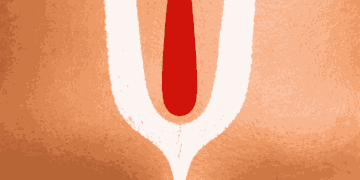The Delhi High Court has dealt a major blow to the likes of The Quint, The Wire and Alt News as the honourable court has refused to entertain their plea on granting interim relief or putting a stay on the applicability of the Information Technology (Intermediary Guidelines and Digital Media Ethics Code) Rules, 2021 on digital news media which seeks to curb fake news.
The Delhi High Court observed that there was “no question” of the vacation bench granting interim relief to the applicants of the petitions – Quint Digital Media Limited and its director, Ritu Kapur; Foundation for Independent Journalism which publishes The Wire; Pravda Media Foundation which owns Alt News, and others. The petitioners were seeking a stay on the new IT rules.
While the case was originally slated to be heard on August 4, the petitioners saw the diving daylights scared out of them after a recent communication from the Central government warning about the possibility of a coercive action incase of non-compliance of the rules. Hence, the petitioners decided to approach the Delhi High Court which is currently on an annual summer break with the hope of getting a relief.
The new guidelines have been formulated with the aim of curbing the menace of fake news, by resting accountability for such content with the publishers, who will have to set in place multiple checks to ensure that only verified and true news is put out in the digital space. The new guidelines will especially make sure that foreign social media companies, who have been having it too good for too long, behave themselves while operating in India.
In a step which will ensure that the digital space is made safe for women, posts regarding their dignity will be ordered to be removed in 24 hours of receipt of complaints of content that exposes the private areas of individuals, show such individuals in full or partial nudity or in sexual act or is in the nature of impersonation including morphed images etc.
OTT platforms, meanwhile, must classify content for online curated content platforms under a universal rating (U), U/A seven plus, U/A thirteen plus, U/A sixteen plus and Adult, for people over 18. The classifications will have to be prominently displayed, and the platforms must also formulate and enable access control mechanisms, including parental locks, for content for those over 13. Additionally, a three-tier regulation system will be put in place to ensure that OTT and social media platforms abide by the said rules.
The three-tier system will consist of a self-regulatory mechanism, under which a grievance redressal system will also be set up. The details of the grievance redressal officer must be prominently displayed by the platform. The second tier or the self-regulatory body will be headed by a retired judge of the Supreme Court or High Court. An appeal may be referred to this body if a person believes his or her complaint has not been appropriately addressed. Finally, at the top of this system will be an inter-ministerial committee, which will be empowered with the authority of taking suo moto cognisance of issues, and recommend the blocking of content in contravention of the Code. The committee will have representatives from the ministries of information technology, information and broadcasting, home, law, external affairs, defence, and women and child development.
It is not surprising that the petitioners are all left-leaning portals who on numerous occasions have been caught spreading fake news to suit their nefarious agenda.
























